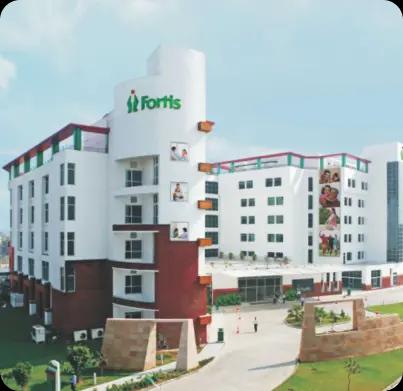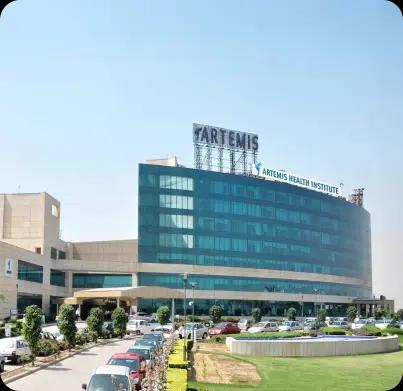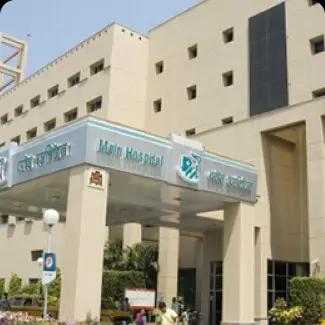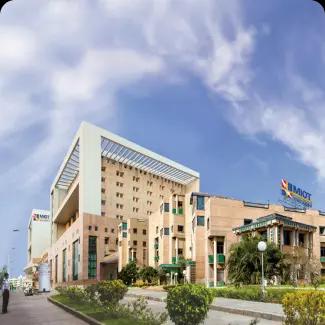
Pedodontics
Pedodontics, also known as pediatric dentistry, is the dental specialty focused on the oral health of children from infancy through adolescence. It emphasizes preventive care, education, and treatment of a variety of dental issues specific to children's developing teeth and jaws.
Free Pick up and Drop
No Cost EMI
Post Surgery Care
Pedodontics, also known as pediatric dentistry, is the dental specialty focused on the oral health of children from infancy through adolescence. It emphasizes preventive care, education, and treatment of a variety of dental issues specific to children's developing teeth and jaws.
Symptoms of pedodontics
Symptoms
While pedodontics is the branch of dentistry focused on children's oral health, it doesn't have specific symptoms itself. However, children may exhibit signs of potential dental problems that a pediatric dentist can address. Here are some pointers to watc
Types of conditions
There are three main types of Pedodontics
Preventive Care/Cleanings and Fluoride Treatments/Sealants
Restorative Care/Fillings/Extractions/Pulp Therapy (Pulpotomy or Root Canal)/Crowns and Bridges:
Habit Management/Habit Counseling/Space Maintainers
Preventive Care/Cleanings and Fluoride Treatments/Sealants
-
Regular cleanings remove plaque and tartar buildup, while fluoride strengthens tooth enamel to prevent cavities.
-
Thin, protective coatings applied to the chewing surfaces of molars and premolars to shield them from decay.
DIAGNOSIS
1. Medical and Dental History The dentist will gather information about the child's overall health, past dental experiences, and any concerns the parents or guardians may have. This history helps identify potential risk factors for dental problems.
2. Clinical Examination A thorough examination of the child's mouth, teeth, and jaws is conducted. This may involve
-
Visual examination of the teeth, gums, and soft tissues for signs of decay, inflammation, or other abnormalities.
-
Palpation of the teeth and gums to assess for tenderness or swelling.
-
X-rays to visualize the underlying bone structure and detect hidden cavities or developmental problems.
3. Diagnostic Tests
Additional tests may be needed depending on the suspected issue. These tests might include
-
Pulp tests assess the health of the dental pulp (the inner tissue of the tooth).
-
Transillumination to detect decay between teeth.
-
Caries detection dyes to identify early stages of cavities
CAUSES/RISK FACTORS
Here are some of the common risk factors in pediatric dentistry
-
Tooth decay: This is the most common dental problem in children. Early detection and treatment are crucial to prevent complications.
-
Gum disease: Gingivitis, the early stage of gum disease, is common in children. If left untreated, it can progress to periodontitis, a more severe condition that can damage the bone supporting the teeth.
-
Malocclusion (improper bite): Early intervention can help correct bite problems and improve the child's oral health and appearance.
-
Dental injuries: These are common in children due to falls, accidents, or sports activities. Developmental problems: These can include missing teeth, extra teeth, or improperly erupted teeth.
PREPARING FOR SURGERY
Preparing for your child's pedodontics surgery involves planning and following the dentist's specific instructions. Here's a breakdown of some key preparation points
1. Pre-operative Instructions:
-
Get Informed: Discuss the surgery with the dentist in detail. Understand the reasons, risks, benefits, and recovery process. Don't hesitate to ask questions.
-
Follow Instructions: The dentist will provide specific pre-operative instructions. These might include fasting guidelines (depending on the type of anesthesia used), medication adjustments (avoiding blood thinners), and arrival time.
-
Arrange Transportation: If sedation is involved, ensure you have a responsible adult to drive your child home after surgery.
2. Preparing Your Child
-
Address Anxiety: Talk to your child about the surgery in an age-appropriate way. Use calming language and explain the benefits of the procedure
-
Pack Comfort Items: Bring a favorite blanket, stuffed animal, or toy to help your child feel comfortable and secure during the surgery and recovery
-
Prepare Post-Op Comfort: Stock up on soft foods your child can easily eat after surgery. You might also consider pain medication prescribed by the dentist
3. General Tips:
-
Wear Loose Clothing: Dress your child in loose-fitting clothes with easy access to the arms for taking vitals or administering an IV
-
Complete Paperwork: Arrive early to complete any last-minute paperwork at the dentist's office
Remember, the key is to follow the dentist's specific instructions and create a calm and reassuring environment for your child.
TREATMENT DETAILS
Technology used
Pediatric dentistry has seen a surge in technological advancements, making treatment procedures more comfortable, efficient, and accurate for young patients. Here's a glimpse into some of the key technologies used in pedodontics
1. Imaging Technologies:
-
Digital X-rays: These emit significantly lower radiation doses compared to traditional film X-rays. They also offer quicker image capture and display, allowing for faster diagnosis.
-
Cone Beam CT Scans (CBCT): These provide 3D images of the teeth and jawbone, crucial for complex treatment planning like impacted teeth or orthodontic procedures.
2. Treatment Technologies:
-
Lasers: Dental lasers offer minimally invasive options for procedures like frenectomies (removing tissue attachments), gum sculpting, and even cavity detection.
-
CAD/CAM (Computer-Aided Design/Computer-Aided Manufacturing): This technology allows for creating custom-made dental restorations (crowns, fillings) using digital scans, leading to a more precise and efficient process.
RECOVERY
Recovery in pedodontics focuses on getting your child back to normal after a dental procedure. Here's a quick rundown
-
Follow the dentist’s instructions: This includes pain medication, diet (soft foods), and oral hygiene practices.
-
Manage discomfort: Use prescribed pain relievers and apply cold compresses to reduce swelling (if applicable).
-
Monitor the area: Watch for signs of infection (increased pain, fever, redness) and contact the dentist if needed.
-
** Stick to a soft diet:** Gradually introduce harder foods as your child heals.
-
** Maintain oral hygiene:** Gently brush and floss as instructed by the dentist to promote healing and prevent complications.
Your journey to good health begins here

Accredited Hospitals
Nationally accredited hospitals for high-quality care

Multi-language Support
Convey your needs in the language you're most comfortable in

Travel Booking Assistance
Seamless booking assistance for your healthcare journey

Personalised Treatment Plans
A treatment journey tailored to all your preferences and needs

Unparalleled Hospitality
Experience exceptional hospitality during your stay

Easy Medical Visa Approvals
Dedicated assistance for medical visa requirements
Plan your healthcare journey with Karetrip!
India’s Best Hospitals are Partnered With Karetrip
Access World-Class facilities from top Hospitals across India
Consult with India’s most experienced doctors
Experience premium care from India’s leading specialists

Dr. Hemanth CR
Consultant Oral and Maxillofacial Surgeon
11+ Years Of Experience

Dr. Gautham Kumar
Dental Surgeon
16+ Years Of Experience

Dr. Preetham Jain
Endodontist
9+ Years Of Experience

Dr. Avinash Reddy
Oral and Maxillofacial Surgeon
16+ Years Of Experience

Dr. Sanketh Reddy
Prosthodontist
14+ Years Of Experience

Dr. Ashna P A
Dental Surgeon
18+ Years Of Experience
Cost Estimation
Learn about the expenses involved in the procedure and what factors affect them.

COST ESTIMATION The cost of pediatric dental care can vary depending on several factors, including
-
Location of the practice: Costs tend to be higher in urban areas compared to rural areas.
-
Dentist's experience: More experienced pediatric dentists may have higher fees.
-
Type of treatment needed: Complex procedures like pulpotomies or crowns will cost more than routine cleanings.
-
Insurance coverage: Dental insurance can significantly reduce out-of-pocket costs.
The average cost of the Pedodontics in India is around ₹11,000 to ₹19,000.

₹19,000
High Cost
₹15,000
Average Cost
₹11,000
Low Cost
The LIST of AVERAGE COST of the Pedodontics across TOP 4 cities in India in Indian Rupee (INR) is as follows :
City
Lowest Cost
Average Cost
Highest Cost
Mumbai
₹ 13,000
₹ 18,000
₹ 22,000
Delhi
₹ 14,000
₹ 19000
₹ 24,000
Hyderabad
₹ 12,000
₹ 17000
₹ 20,000
Chennai
₹ 11,000
₹ 16000
₹ 19,000
Commonly Asked Questions
At what age should my child see a pediatric dentist?
It's recommended for a child to see a pediatric dentist by their first birthday or within 6 months of their first tooth erupting.
What are the most common procedures in pedodontics?
Common procedures include cleanings, fillings, fluoride treatments, extractions, and space maintainers.
How can I prevent cavities in my child's teeth?
Practice good oral hygiene (brushing twice a day, flossing), limit sugary drinks and snacks, and schedule regular dental checkups.
What are some signs of teething pain in a child?
Look for drooling, irritability, swollen gums, and chewing on objects. Teething rings and pain relievers (consult pediatrician) can help.
My child sucks their thumb. Is this a problem?
Persistent thumb sucking can affect tooth alignment. Talk to your dentist about solutions if it continues past a certain age.

Do you still have a query?


"I had a successful surgery at Fortis Escorts Hospital, and it was all thanks to Karetrip's help in finding the right hospital for me. The entire process was smooth and stress-free, with Karetrip handling all the arrangements and answering any questions I had. The medical team at the hospital was outstanding, and the facilities were top-notch. I highly recommend Karetrip to anyone looking for a tension-free healthcare experience."
Read MoreFatima
Chattogram


"Thanks to Karetrip, I got connected with MAX Hospital in New Delhi. The team guided me through every step – from finding the right doctor to handling travel and visas. They made a daunting process feel like a breeze. The care I received at MAX Hospital was outstanding, and I can't thank Karetrip enough for making it possible. They truly put patients first and go the extra mile to ensure a smooth healthcare journey. I'm grateful beyond words!"
Read MoreHasan
Dhaka


"At first, I was unsure about having a medical procedure done in a foreign country. However, Karetrip's team at Indraprastha Apollo Hospital made me feel much better. The hospital was very clean, modern, and had everything they needed to help me. The staff were very kind and did everything they could to make me feel comfortable. I'm really happy with how my treatment turned out, and I appreciate Karetrip for making it easy and stress-free."
Read MoreImran
Sylhet
 Google Reviews4.9/5
Google Reviews4.9/5




I had a successful surgery at Fortis Escorts Hospital, and it was all thanks to Karetrip's help in finding the right hospital for me. The entire process was smooth and stress-free, with Karetrip handling all the arrangements and answering any questions I had. The medical team at the hospital was outstanding, and the facilities were top-notch. I highly recommend Karetrip to anyone looking for a tension-free healthcare experience.
Fatima
Chattogram
 Google Reviews4.9/5
Google Reviews4.9/5



















